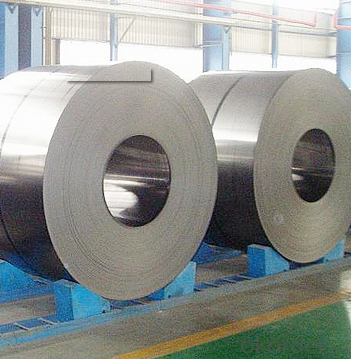Quick Details
Standard: ASTM
Grade: FS Type A and B
Type: Steel Coil
Surface Treatment: Galvanized
Application: Forming steel
Width: 600-1534mm
Length: Coil
OKorder Service Pledge
OKorder Financial Service
You Might Also Like
Standard: ASTM
Grade: FS Type A and B
Type: Steel Coil
Surface Treatment: Galvanized
Application: Forming steel
Width: 600-1534mm
Length: Coil
| Packaging Details: | Oscillated wound: one coil per bundle, inner is the protecting humidity-proof wax paper. Medium is plastic film. Outer is sackcloth or compound paper packing. Coil to be laid on single type pallet (one pile per pallet) |
|---|---|
| Delivery Detail: | Depends on specification and order quanity. |
Product | Hot dip galvanized corrugated steel coil/sheet |
material | SGCC,SGCH,SGCE,SPCG,DX51D,Q195,Q235 |
Thickness | 0.13-0.6mm |
Width | 914-1500mm(according to your need) |
Zinc coating | 40-275g/m2 |
Spangle | Regular, small, big or zero |
Coil Weight | 3-8tons |
Capacity | 250,000 tons/year |
Coil ID | 508mm/610mm |
Feature:
(1) Type of zinc coating finish: regular spangle, minimized spangle and skin-pass.
(2) Types of surface qualities: as coated surface, improved surface and best quality surface.
(3) Surface treatment: chemically passivated, chromate-free passivation, phosphate, anti-finger print, phosphateand, self lubricating film, and untreated.
(4) Type of oiling: oiled and unoiled.
(5) Coil ID: 508/610mm.
(6) Grade: HX380LAD+Z; Application: high strength steel for cold forming.
Mechanical properties (transverse direction) of low carbon steels for cold forming
What is the application of Steel Coil?
There are two sides,one is out side: Workshop, agricultural warehouse, residential precast unit, corrugated roof, roller shutter door, rainwater drainage pipe, retailer booth;the other is inside: Door, doorcase, light steel roof structure, folding screen, elevator, stairway, vent gutter.

Send your message to us
OKorder Service Pledge
OKorder Financial Service
Similar products
Hot products
Hot Searches
Related keywords